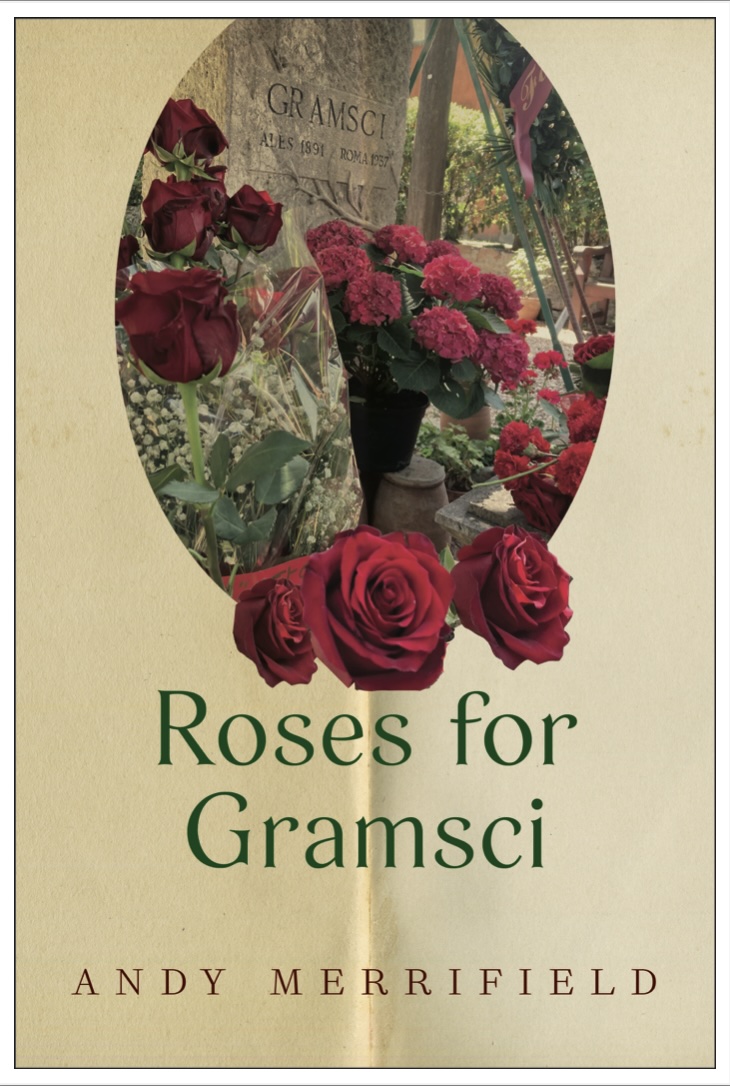It’s April 27, 2024 and Gramsci’s grave is covered with brilliant flowers, red roses, blooming everywhere, a sight to behold. They made me think about what it is I want to stress in this book. If, in a previous chapter, I spoke of stones and a sense of obligation—obligation to Gramsci, to Marxist politics, to the Left, a sentiment somehow reinforced by the little grapefruit-sized rocks a deformed Gramsci had lifted as a child–now, I think it’s roses I want to emphasize, roses for Gramsci, and the notion of resilience. Not just of our intervening to nurture nature, to sustain ourselves ecologically, but of an individual and collective capacity for resilience, a stoicism to resist, to learn and educate oneself, to promulgate a politics of emancipation even in incarceration, even in an inferno resembling Dante’s.

“It seems to me that under such conditions prolonged for years,” Gramsci told his younger brother Carlo (December 19, 1929), “and with such psychological experience, a person should have reached the loftiest stage of stoic serenity and should have acquired such a profound conviction that humans bear within themselves the source of their own moral strength, that everything depends on them, on their energy, on their will, on the iron coherence of the aims that they set for themselves and the means they adopt to realize them, that they will never again despair and lapse into those vulgar, banal states of mind that are called pessimism and optimism. My state of mind syntheses these two emotions and overcomes them: I’m a pessimist because of intelligence, but an optimist because of will.”
— Andy Merrifield, Roses for Gramsci (Monthly Review Press, April 2025)

Hi Andy, welcome to the blog world. Hope to see you soon 🙂 Gülçin
LikeLike
a fineoffering
Just click
http://bit.ly/2qwxREx
LikeLike
Just reading your book “The wisdom of donkeys” after looking at your book on Marx. Having travelled a similar route from working class council estate to (inevitably phoney) “academic”; and having also rejected that facile game (after writing several books myself) I would just like to say how much I enjoy your reflections. I feel an empathy for your journey. I am semi-retired now but only became a “scholar” after Thatcher made my job at the shipyards redundant. I rejected the bullshit of academia from day one (1992). Never regretted it, despite the ostracism and condescension. Only the Marxism remains….I was never likely to throw the baby out with the bath water 😊
LikeLiked by 1 person
Hi Andy!
Loved your “Metromarxism”, “Magical Marxism”, “Wisdom of The Donkeys” and “Politics of Encounter”. I’m must add, your blog is no less enjoyable. But what is the painting on the banner? Just curious.
LikeLiked by 1 person
Hi Andy!
Loved your “Metromarxism”, “Magical Marxism”, “Wisdom of The Donkeys” and “Politics of Encounter”. I’m must add, your blog is no less enjoyable. But what is the painting on the banner? Just curious.
LikeLike
Andy! Meeting you was a pleasure today during my sojourn to see Antonio (who may or may not be Jewish). I meant to send you my email and website, Shirley, sending you info below.
LikeLike
Andy, looking forward to your new book, enjoyed meeting you at Antonio’s final resting place, still think he may or may not be Jewish. That’s my research this week. Hope to run into you again. Shirley from Canada (msgramsci@gmail.com) website: freireproject.org
LikeLike